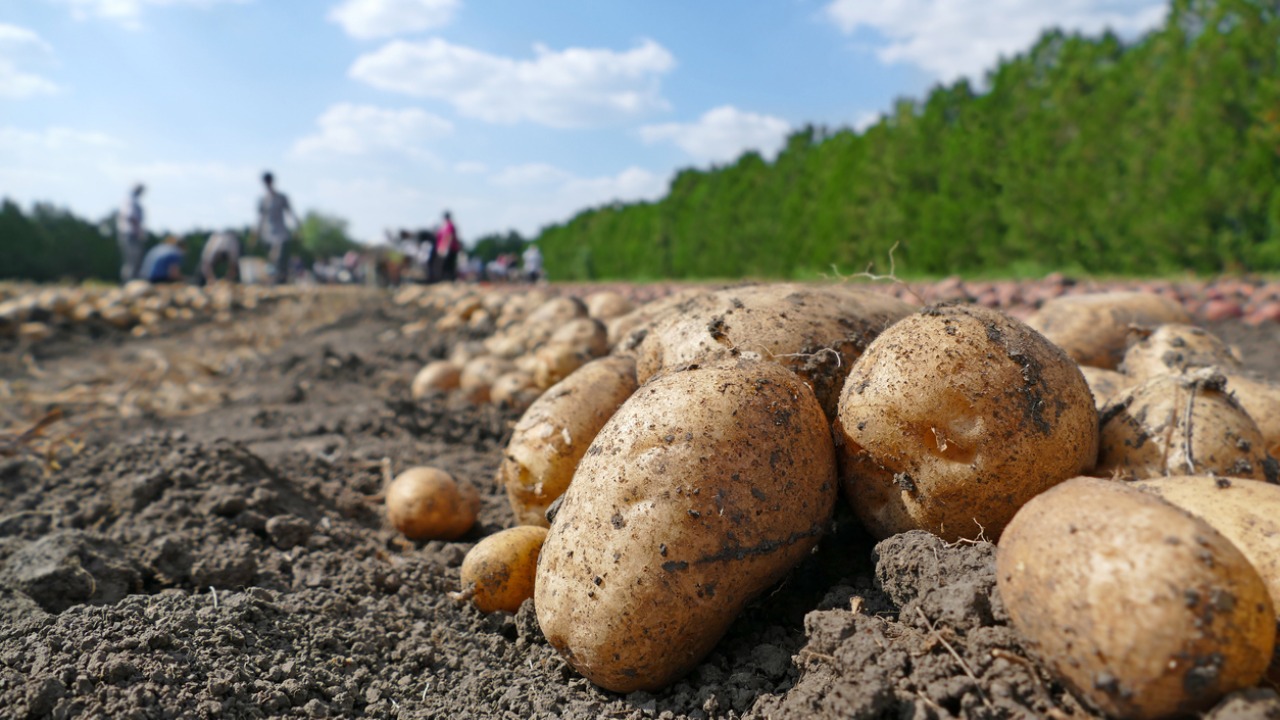The Protection of Plant Varieties and Farmers Rights’ Authority (PPV&FRA) has withdrawn PepsiCo India’s registration. Two years after the corporation outraged the public by suing nine Gujarati farmers for allegedly violating patent rights by cultivating a registered potato variety. Farmers’ rights activist Kavitha Kuruganti is suing PepsiCo India, a global food and beverage business, in court. This case has brought to light the conflicts between plant-breeding companies and farmers’ rights in developing nations.
What is FC5 potato
In compared to other types, the FC5 potato variety, also known as FL-2027, has a 5% lower moisture content, making it perfect for manufacturing potato chips. Dr. Robert W. Hopes, who was employed by Frito Lay, a subsidiary of PepsiCo, in 1987 as a potato breeder, was the one who initially developed this.
The FL-2027 type of potato was first released in India in 2009. As part of an exclusive arrangement, the corporation was required to provide seeds to about 12,000 farmers and purchase all of the harvest at a set price. This potato variety was registered by the firm in 2011 and was approved under the PPV&FR Act in 2016.
The legal battle
The company sued nine farmers from Gujarat for alleged violations of Section 29 of the Act and also filed a 4.2 crore lawsuit against four farmers in the state in April 2019. The company claimed that even farmers who were not a part of the collaborative farming programme were engaged in illegally growing and selling the FL-2027 potato variety. The corporation eventually dropped all of the charges, though, following intervention from the Gujarati government.
The Protection of Plant Variety and Farmers Rights Authority received a letter from Kuruganti in 2019 alleging that PepsiCo India had hired a private intelligence agency to pose as interested between January and February 2019, several Gujarati potato growers welcome customers and visitors to their farms.
A step to protect farmers right
Kuruganti is the convenor of the Alliance for Sustainable and Holistic Agriculture network, which is made up of more than 400 organisations dedicated to sustainable and viable farm livelihoods. Kuruganti claimed PepsiCo India had infringed farmers’ rights to specific plant varieties in a letter to the Protection of Plant Variety and Farmers Rights Authority after the lawsuit was filed. A representative for PepsiCo India informed IndiaSpend that the business is requesting that the High Court reinstate the FL-2027 variety’s registration in order to protect the rights of the thousands of farmers who cultivate the variety under the company’s collaborative farming programme contract.
In order to safeguard their interests, registered plant variety firms have been shown to utilise coercive methods against farmers, according to agricultural activists who reject this viewpoint.
Legal professionals, on the other hand, argue that intellectual property rights protection is crucial to encourage the creation of new plant types, a process that takes many years. The Gujarat government intervened as a result of significant protests and boycott threats from agricultural organisations and political parties across the ideological spectrum during a vital election season, forcing the firm to withdraw all lawsuits in May 2019.
According to Kuruganti, PepsiCo India, the breeder, failed to comply with the laws and regulations of the Protection of Plant Variety and Farmers Rights Act, 2001, which led to the award of the certificate of registration, and the registration of the variety was not done in the public interest.
PepsiCo India’s registration of the potato variety was cancelled in December 2021 after the authority decided in Kuruganti’s favour. In order to “defend PepsiCo’s patent rights in its potato variety FL-2027,” the corporation filed an appeal with the High Court of Delhi in May 2022, asking for a stay on the revocation decision. The company spokesman told India spend. (Source: Scroll.in)
Decision in the favour of farmers
The ruling has been hailed as a significant win for Indian farmers and a precedent that anything endangering a farmer’s right under section 39 would be of public concern and should be handled appropriately. This ruling would discourage “any other seed or food firm from violating legally allowed farmers’ seed freedoms in India”
The ruling exposed the numerous procedural flaws in the issuance of plant variety registration certificates. In order to preserve both farmers’ and plant breeders’ rights, the authority highlighted that there are several lessons to be learned from this case. To evaluate applications for plant variety registration in accordance with the Act and its rules and regulations, the registrar was tasked with creating a standardized sheet review procedure.
It was also advised that the Registrar form a committee that would provide thorough findings on how to prevent similar situations in the future.
